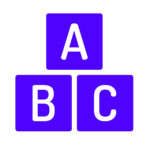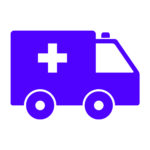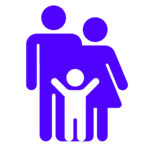NC InCK aims to bring together child-specific services from different agencies and providers to help meet health, education and social needs of children and families. By accounting for social drivers of health (like challenges related to adequate food or housing), we aim to support communities in coordinating services for children between healthcare and social service providers. We work with organizations and systems that provide the following services, and include below our definition of each service and links to the Core Service Guides developed for Family Navigators for each one:
Child Welfare
A continuum of child and family social work services designed to ensure that children are safe and that families have the necessary support to care for their children successfully, including family preservation and support services; child protective and placement services; adoption and foster care; and other community-based programs that prevent abuse, neglect, and exploitation.

Early Care and Education
Programs that focus on keeping children from birth to 8 years healthy, safe and nurtured, and learning and ready to succeed. For example, programs that provide early childhood education , health, nutrition, and family services for children (e.g., Head Start, Smart Start, Pre-K, home visiting, Reach Out and Read, and public and private early childhood centers).

Food
Federal, state, and community-based programs that address food insecurity and nutrition, as well as mitigating barriers to food access (e.g., transportation, stigma). Food assistance programs provide families the food they need for a nutritionally adequate diet, such as Food and Nutrition Services (Food Stamps), Women, Infants, and Children (WIC), Supplemental Nutrition Assistance Program (SNAP), school lunch programs, and food distribution programs.

Housing
Federally-funded and community-based programs addressing housing instability (e.g., having trouble paying rent, overcrowding, frequently moving, staying with relatives, or spending the bulk of household income on housing, homelessness) for children and families. These include Continuums of Care (funded by the Department of Housing and Urban Development), NC 211, and homeless shelters. Also includes rental and financial assistance programs, such as Public Housing Agencies (PHAs), or eviction prevention programs that work to reduce the number of children and families experiencing homelessness.

Juvenile Justice
Juvenile Justice includes Juvenile Crime Prevention Council programs, non-residential and residential services, and juvenile commitment facilities that operate to prevent and reduce delinquency by children and youth ages 6 to 18 years old. Juvenile Clinical Services and Programs include medical, psychiatric, dental, psychological, substance abuse, recreational, spiritual and case management services.

Legal Aid
Civil legal aid has historically worked to address access to key health-related services, such as Medicaid and other public benefits like the Supplemental Nutrition Assistance Program (SNAP). Legal Aid of NC provides free legal services to people experiencing lower incomes in cases involving basic human needs, like safety, housing, and income.

Mobile Crisis Response
Assessment and de-escalation services provided by a team of qualified professionals that aim to reduce acute symptoms related to mental health and/or behavioral health emergencies where they occur.
Physical and Behavioral Health
Services that support an individual’s physical, emotional, social, and psychological well-being and improve health outcomes. Providers include primary care providers (e.g., pediatricians family medicine practitioners), those who specialize in mental health and substance use needs, and community-based and inpatient treatment programs; social workers; dentists; nutritionists; and other health workers.

Public Health Services-Title V
A federal block grant program that funds state maternal and child health agencies to work collaboratively with local health departments, schools, nutrition services, Early Intervention (EI), and other children’s health programs.

Schools
K-12 public, private, charter, and alternative schools for children and youth. Health services delivered in schools include school-based health centers (SBHCs), food and nutrition supports, and Medicaid-covered services, such as school nursing services, and physical, occupational, and speech therapies. Services also include educational supports, such as for children and youth with an Individualized Education Program (IEP) or 504 Plan.
Special Populations
Including adolescents and young adults.


